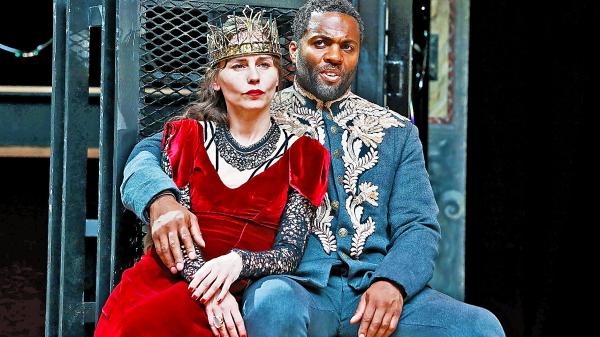Notes on Macbeth - Shakespeare's Globe, London
The production was not an entirely successful hybrid, in my opinion. The Globe’s stage was ‘dressed’ with black wrought-iron entrance/exit doors and cages around the pillars; a large triangle of silky fabric was let down from the heavens to cover activity using the trapdoor (the witches, Banquo’s ghost).
There were occasional intense lighting effects from upstage lights; there was fog; and the music played and sung in the gallery – in a Middle-Eastern style, but in Latin and some other languages – occurred not only between acts and scenes, but also as an underlay to some scenes, such that the actors’ words were obscured. Overall, one would say that an Expressionist aesthetic was the intention – as though Shakespeare’s astonishingly atmospheric writing in this play couldn’t be trusted to work on a bare stage in daylight. This struck me as unfair to the work of the actors, particularly Ray Fearon as Macbeth, who had clearly considered the weight of every word and syllable – he spoke at all times with clarity and passion. Lady Macbeth (Tara Fitzgerald) gave her role the familiar outlines of the fashionable Tory wife, ambitious for her husband and the trappings of power – and with a tendency to take the line ‘That which hath made them drunk hath made me bold’ as a guide for all occasions. Nevertheless, her utter collapse on ‘You lack the season of all natures, sleep’, at the end of the banquet scene, was shockingly effective.

